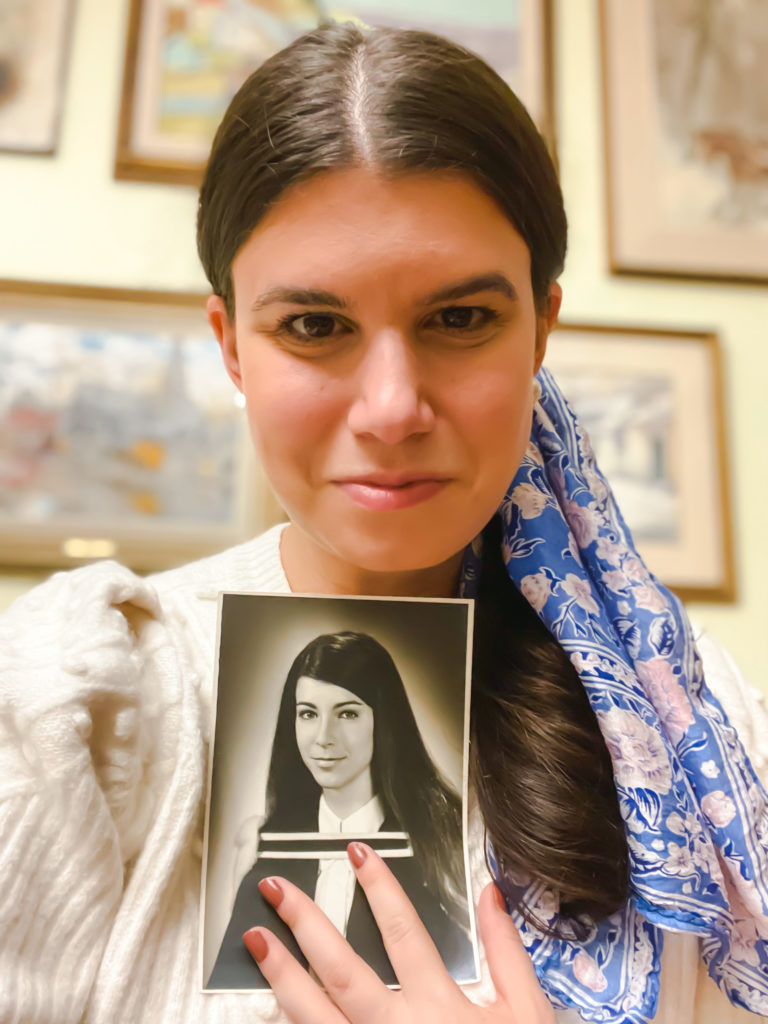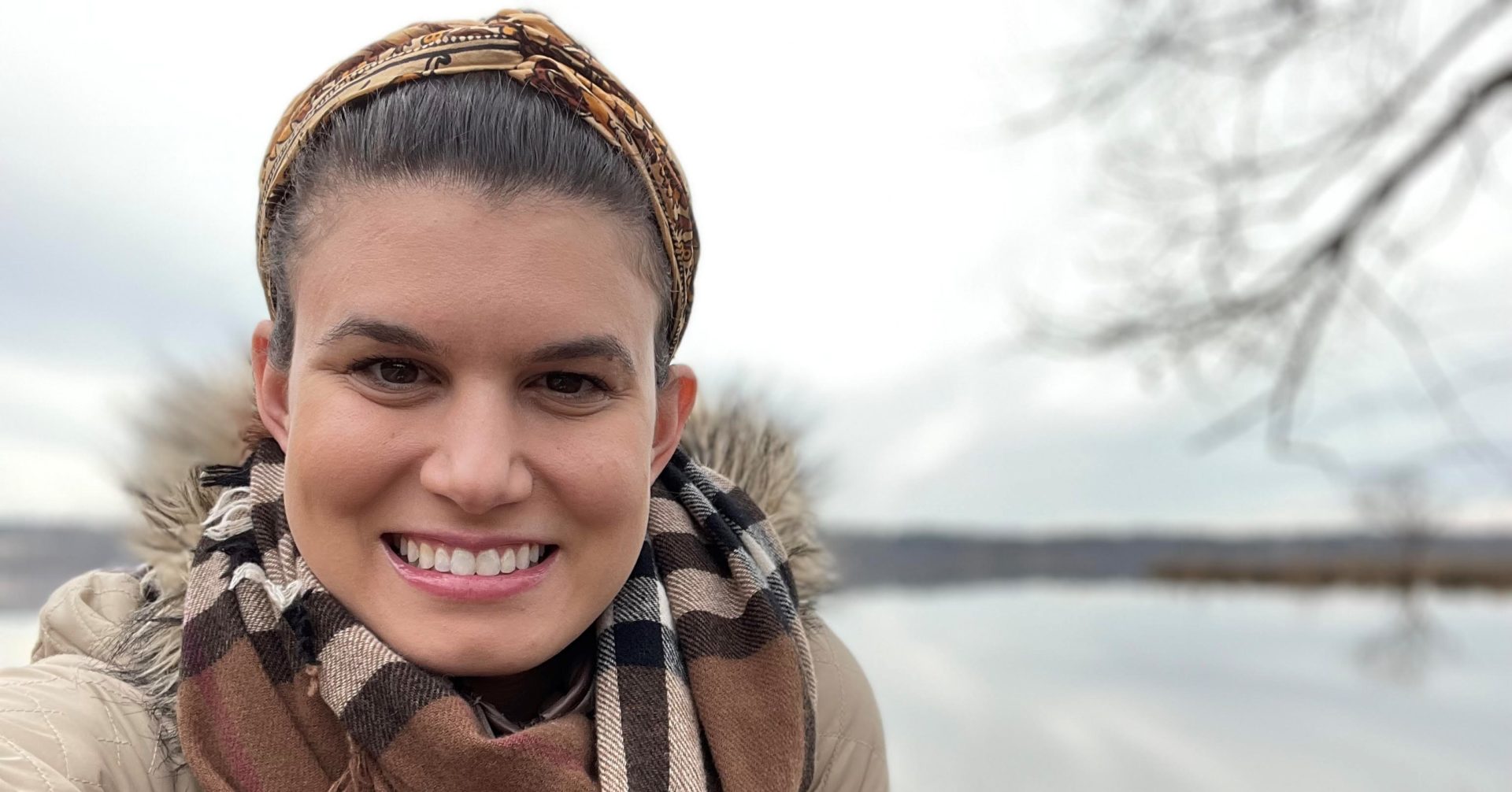The idea of “grieve leave” came to Rebecca Feinglos, age 32, after her father died unexpectedly at the beginning of COVID lockdown. Her mom had died when she was a teen, and suddenly she realized she was “an orphan.” Rebecca separated from her husband less than a year after her father died, and she got shingles at the end of November 2020 due to stress. She felt alone and “suffocated by my own grief.” She decided to leave her job to grieve all of the losses that were consuming her, documenting her Grieve Leave along the way. Below she shared more with us about the journey.
Can you share some of your grieve-leave plans with us? How are you setting it up?
The general structure is that I’ll grieve small and I’ll grieve big every month. Grieving small is the mundane stuff: journaling, painting, spending time in nature, visiting the cemetery, etc. Grieving big I’ve defined as traveling somewhere with the particular intention to grieve. This looks like a grief retreat in Maui I’ll be going to, for example.
Have you scheduled all your plans already?
I am holding myself back from overscheduling the entire year. I’ve placed some trips on my calendar but I also want to see how I feel as I move forward. I can tell you that having spent time in three countries over the past month and a half, I realized the pace is too much so I won’t be traveling in March. There’s also a world where at some point I could say, “I don’t want to do this anymore” and stop.

Rebecca, holding a picture of her mom, who died when Rebecca was a teen.
What are you most looking forward to?
I’m looking forward to just feeling better. And truly I already do. I feel more like myself than I have in a long time, and I think mostly that’s from pulling the veil off and publicly acknowledging my grief. I’m not pretending I’m fine anymore, and that’s so freeing. I’m excited to come out of the other side of Grieve Leave with more clarity on how to grieve in a more sustainable way.
What overwhelms/scares you the most about it?
Being by myself so much is a real challenge for me, but it’s something that I know I need to work on to heal. My discomfort with being alone is, down to my core, related to losing my mom as a child, and now from the feelings of abandonment from losing my father and also my marriage’s downfall. A big personal goal of this year for me is to feel more secure in being alone.
Do most people in your life support Grieve Leave or think you’re crazy – and do you care?
One of my favorite quotes of all time is, “Be a fountain, not a drain” (Rex Hudler). I seek out the company of people who lift me up, like a fountain, and don’t drain happiness from my life. I seek out friends who support me and who challenge me. My friends have been incredibly supportive about this journey, and are also offering thoughtful feedback and concern for my well-being. Meanwhile, while the reality of being an orphan at 32 is sad, the fact that I have no parents to disappoint is pretty freeing.
Any last things you want to tell us until we meet again?
I just want to take a second to acknowledge the privilege that I have in being able to take extended time off from work to grieve. That’s such a rare gift. I want to make the most of this time and produce something at the end that can help other people as a result of what I’m lucky enough to have been able to do.
Prior to her grievous leave, Rebecca Feinglos served as the chief policy and strategy advisor for the Division of Child Development and Early Education in the North Carolina Department of Health and Human Services. She served at NCDHHS for nearly four years. In 2020, Rebecca coordinated statewide COVID-19 response for pre-k through grade 12 schools, in close partnership with education leaders. In 2021, she built and led the strategy team at the Division of Child Development and Early Education to utilize $1.2 billion in federal COVID-19 relief funds for early childhood. Visit www.grieveleave.com to follow Rebecca’s journey.
